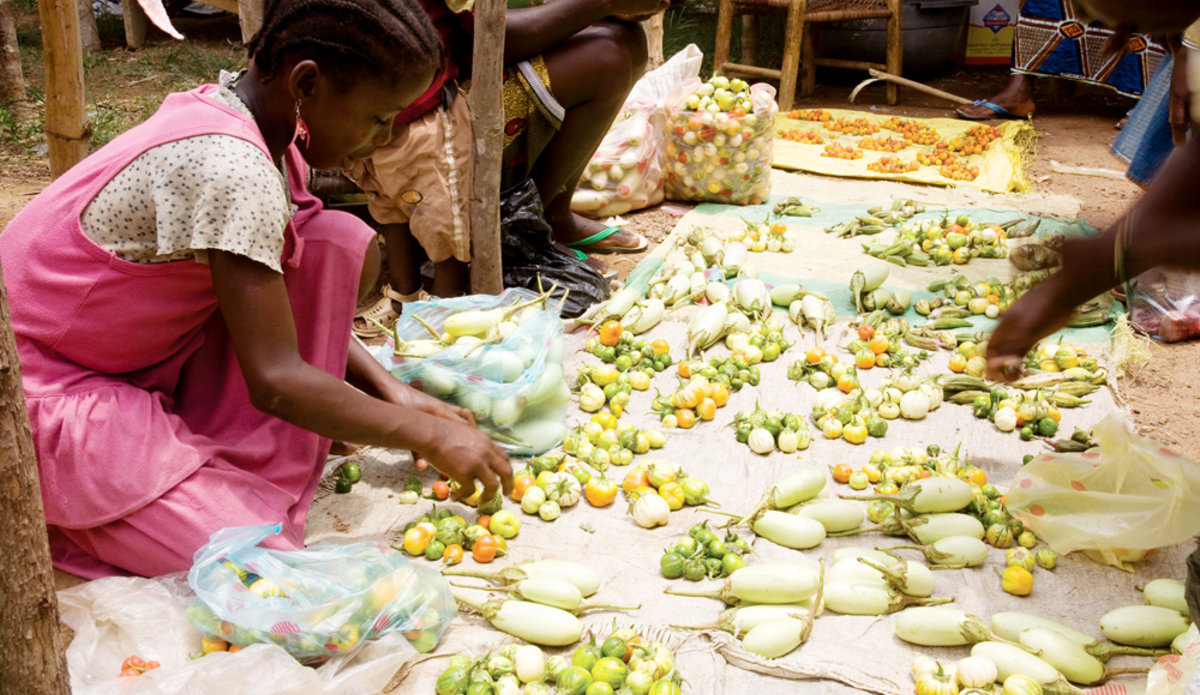Cross Border Food Security
The occasion marked a “unique” moment in efforts to achieve long term food security for the border communities of the two countries, said FAO Liberia Country Representative Jean Alexandre Scaglia. It created “synergies to maximize allocation of our resources and take better advantage of available skills,” he added.
Recent assessments have shown that the border region between Côte d’Ivoire and Liberia continues to be fragile and prone to instability. It is marked by limited state capacity and the presence of a number of high-risk groups, including refugees, internally displaced people as well as ex-combatants and armed groups who fought during the political crisis following the 2010 presidential elections in Côte d’Ivoire.
There are also large numbers of youth that are lacking sustainable livelihood opportunities and can easily be drawn into future conflicts should they arise. Land conflict and social cohesion problems persist throughout the region. The porous border between the two countries facilitates cross-border movements of people and goods, and provides an enabling environment for illicit activities, including the movement of armed groups.
In this context, experts say food security intervention, if carefully designed, can play an important role in stabilizing the region in the mid to long term.
FAO officials say the ongoing transition from emergency to recovery and development opens a window of opportunity to tackle the root causes of political conflict and food insecurity, and to build the region’s resilience to future shocks.
At the Monrovia meeting, representatives from UN agencies and NGOs from Côte d’Ivoire and Liberia agreed on eight cross-border actions outlining a new approach to food security along the Ivorian-Liberian border.
A core group of food security actors working on both sides of the border - including the respective offices of World Food Programme, FAO, Norwegian Refugee Council and Danish Refugee Council in Côte d’Ivoire and Liberia - has been formed to move the process forward, particularly at field level, including by conducting joint assessments and designing projects jointly. Other food security actors are invited to join efforts to strengthen cross-border collaboration, based on the actions defined in Monrovia.
The Monrovia meeting was held to follow-up on a meeting of the UN Country Teams and UN missions from Côte d’Ivoire and Liberia in Abidjan in March 2012. While the Abidjan meeting focused on a comprehensive and global framework for cross-border collaboration, the Monrovia meeting focused exclusively on cross-border collaboration of the food security sector/cluster.
Terming it a “regional solution oriented approach”, UNDP Country Director Dominic Sam urged expansion of the Cross Border Food Security initiative to cover other “volatile areas in neighboring countries”. World Food Programme Deputy Country Director Wurie Alghassim stressed the need for the governments of Liberia and Côté d’Ivoire to play key roles in implementation of the concluding points derived at the meetings.
Participants at the Monrovia meetings concluded that developing agriculture based livelihoods yields triple advantage by increasing food security, promoting economic development and furthering food stability and security. Meanwhile the eight member task force on food security will coordinate and monitor implementation of Monrovia Food security principles and promote further cross border collaboration.
 UN
UN United Nations Peacekeeping
United Nations Peacekeeping





